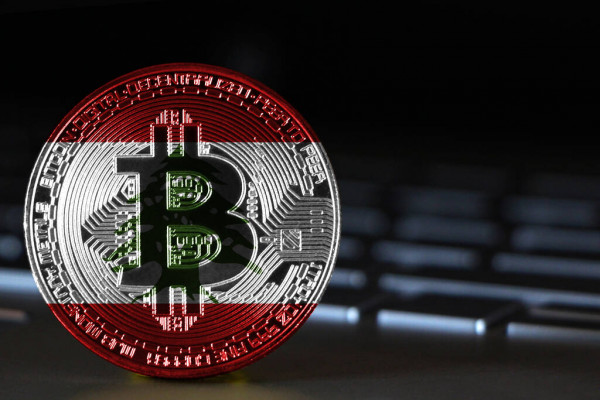Tech & Business
8.11.2021
Can Crypto currencies act as a cure to the crisis in Egypt and Lebanon?

In the midst of the global pandemic and economical collapse, world citizens are increasingly turning to bitcoin crypto-currencies to overcome the crisis. This is particularly the case in Lebanon and Egypt, where interest in crypto-assets grew in recent months.
Last February, the boss of Tesla announced the investment of 1.5 billion dollars in bitcoin. News that soon led the price of the crypto-currency to skyrocket from 39,000 to 57,000 dollars in just a few days. A frenzy shared by many Lebanese who are increasingly interested in the famous crypto-currency that they see as a way to circumvent the heavy restrictions imposed by banks since the banking crisis of 2020.
Getting around banking limitations
The volume of bitcoin transactions has tripled since the Lebanese banking crisis of 2020 and the historic depreciation of its national currency, as Marcel Younes, creator of “Bitcoin du Liban“, the largest crypto-currency community on Telegram, explains to Commerce du Levant, “On our group, the volume of transactions now represents between 2 and 3 million dollars per month, compared to one million before the crisis…. The community is booming, we went from 200 to 1700 members in less than a year, with a clear acceleration in the last three months.
A craze that can be explained by the informal restrictions that Lebanese banks, short of cash, in a country where the national debt now represents 160% of GDP. Cryptocurrencies then appear as a way to send large sums of money without any restrictions, which makes it very popular among Lebanese in the diaspora who want to send money to Lebanon, while avoiding the high transfer fees imposed by the traditional banking system. A phenomenon increased since the terrible explosion that ravaged Beirut on August 4, and which gave birth to platforms such as Crypto Disaster Relief for Beirut Explosion, which allows to make crypto-currencies donations to local associations and ensure that the money is sent to the right recipient without costing too much. Founded by three young Lebanese people, the system has already raised over $11,000.
Becoming the icon of the libertarian ideal, bitcoin was born in the aftermath of the subprime crisis in 2008, and consists of a decentralized virtual monetary system, allowing to get rid of the traditional financial system dependence during any transaction. An intrinseque nature that makes it quite successful in times of economic crisis, and makes sense in a country like Lebanon where a great deficiency towards banking and political institutions has gained the citizens since the economic crisis and the revolution that followed in late 2020, as this young bitcoin trader was telling on Al Jazeera “If you fight for a world where bitcoin is the main currency, you are fighting for the end of all governments” and adding “We have the separation of the state and the church, today with bitcoin we are walking towards that of money and the state. ”
A safe haven against inflation
Internationally, bitcoin also appears to be a way to be protected against the inflation caused by central bank policies because the crypto-asset production is carried out by a peer-to-peer mining technology, which has a ceiling of 21 million units: “Bitcoin is limited in supply while demand keeps growing, which makes it a deflationary currency, whose price tends to appreciate, like a digital equivalent of gold,” tells Mahmood Dgheim, a bitcoin trader since 2015, to Le Commerce du Levant. This is also the case in Egypt, where registrations on the British cryptocurrency exchange platform CEX.IO (more than 3 million users) have increased by 250% from September to December last year, according to the specialized website CoinDesk. A surprising bond when we know the Egyptian government’s reticence towards crypto-currencies. The Grand Mufti of Egypt banned them in 2018, considering them against the Islamic law, due to the opacity of its exchanges and the risks of money laundering, tax evasion or other illegal activities financing. A measure quickly followed at the state level in September 2020, with the implementation of a banking law of the Egyptian Central Bank (ECB) prohibiting the issuance of virtual currencies and their trading without obtaining an official license. This ban, however, has not stopped Egyptians from buying cryptos, especially since the pandemic accelerated pressure on the national economy and increased the need for alternative income for Egyptian citizens, as the site Blomberg explains in an email to CoinDesk “Most of our Egyptian users are relatively young (below 34) and are looking for additional income through trading or holding….”.
A window of opportunity for thousands of young people in this country where the unemployment rate is 30%, who see virtual currencies trading and mining as a way to make money without too much capital at the start.
popular

